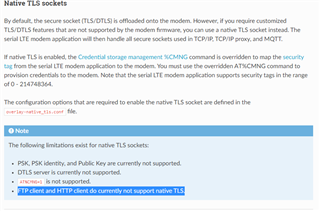Hi,
I open ssl socket to the server (without certificate verification),
and then use an http_client_req() call, to perform the actual http request (with additional optional headers).
That works fine for both http GET and POST requests, that have a short response from the server.
However, when the server's response is a bit larger (say 2.5KB not including response headers and cookie), I always get "Socket was closed by remote" error (-104).
I tried increasing recv_buf_len from 1KB to 8KB, but it didn't help.
When debugging http_client_req(), I see that the call to socket's recv() just returns 0 bytes, which is considered socket close by remote.
On the server logs I see that HTTP request, but no special problems appear on aws elb logs.
Performing the same request on my PC (using Postman for example), works just fine, so the problem is not on the server side (at least not with standard http/tcp settings)/
thanks in advance..



